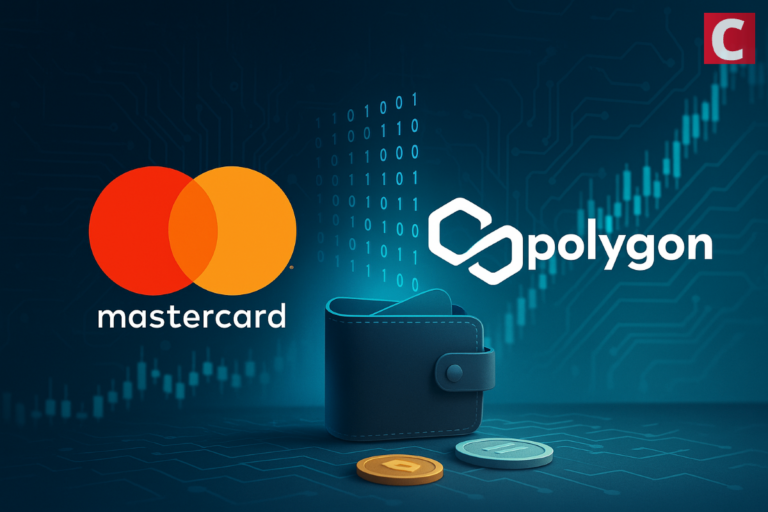Mastercard selected Polygon Labs to support verified username transfers in self-custody wallets, citing the network’s speed and reliability.
Financial giant Mastercard stated that it has chosen Polygon Labs POL $0.11 24h volatility: 0.1% Market cap: $1.14 B Vol. 24h: $57.62 M to facilitate verified username transfers across self-custody wallets.
The company has also tapped into payment API firm Mercuryo for verifying user and issuing aliases linked to their on-chain identity.
Mastercard said that the reason behind choosing Polygon as its initial integration partner was due to the network’s transaction speed, reliability, and payments-oriented infrastructure needed to support the rollout.
Big news:@Mastercard chooses Polygon to launch username-based transfers for self-custody wallets, with @mercuryo_io. pic.twitter.com/p0aTlP7wdp
— Polygon (@0xPolygon) November 18, 2025
Mastercard Partners With Polygon for Its Crypto Credential Framework
In its official press release, Mastercard said that its Crypto Credential framework introduces standardized verification for blockchain addresses by assigning human-readable aliases linked to verified individuals.
Under the system, crypto payments API provider Mercuryo will handle identity verification and issue these aliases. This will allow users to connect to their self-custody wallets.
This model is similar to mainstream payment apps that use usernames instead of bank account details, giving users a unique identifier that can be mapped to their wallets.
Users can also request a Polygon-based token, indicating that their wallet supports verified transfers. This is Mastercard’s another major blockchain collaboration, after Chainlink, earlier this year.
This will further allow applications to route credential-based transactions more efficiently.
Speaking on the development, Raj Dhamodharan, Executive Vice President of Blockchain & Digital Assets at Mastercard, said:
“By streamlining wallet addresses and adding meaningful verification, Mastercard Crypto Credential is building trust in digital token transfers. Bringing Mercuryo and Polygon’s capabilities together with our infrastructure makes digital assets more accessible and reinforces Mastercard’s commitment to delivering secure, intuitive, and scalable blockchain experiences for consumers worldwide.”
Leveraging PoS Network for Fast Settlement and High Throughput
Polygon’s Proof-of-Stake chain offers fast settlement, low transaction costs, and high throughput, making it suitable for payment-scale activity.
The two recent upgrades, Rio and Heimdall v2 releases, have improved finality, eliminated reorganization risks, and expanded the network’s transaction capacity.
In addition, Mastercard, Ripple XRP $1.49 24h volatility: 1.9% Market cap: $90.66 B Vol. 24h: $2.83 B , Gemini, and WebBank have formed a partnership to explore using Ripple’s RLUSD stablecoin to settle fiat credit card transactions.
The collaboration was announced during the Ripple Swell 2025 conference in New York, earlier in November.
next